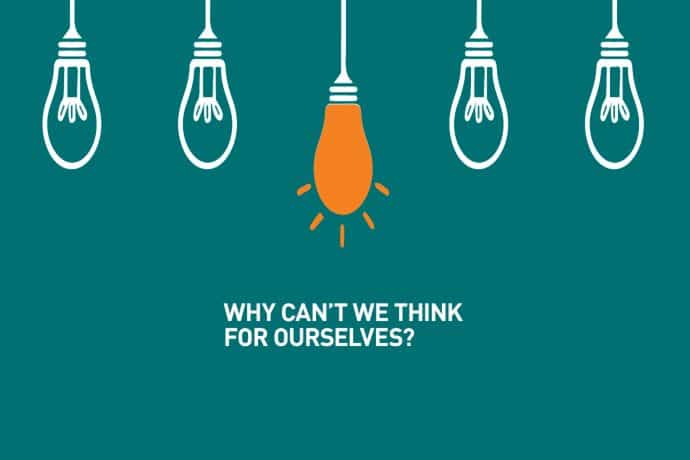Among the rites of passage for aspiring Conservative MPs is to beauty parade themselves to right wing think tanks, mostly headquartered in the USA.
During her visit to Washington DC in November 2022, Our MP Trade Secretary Kemi Badenoch, addressed the Cato Institute. Cato describes itself as one of the most prominent libertarian think tanks, pushing an agenda that emphasises deregulation of the market and decreased government spending.
Soon after Badenoch’s visit Oliver Dowden, later deputy PM, visited the Heritage Foundation in Washington DC. Heritage’s mission is to “formulate and promote public policies based on the principles of free enterprise, limited government, individual freedom, traditional American values, and a strong national defense” – all geared to US needs.
Earlier this year the Financial Times proclaimed ‘Britain is not America — and the right shouldn’t forget it. The US brand of national conservatism fails to resonate in the UK because it is a fundamentally different society.’
While think tanks of all persuasions have a role to play in stimulating policy debate – and many make a valuable non-idealogical contribution to data collection and analysis – problems arise when they take on the character of a religion, proselytising and seeking to infiltrate deep into democratic structures. Worse still, when commercial interests get in on the act.
So why is it that so much policy in this country is driven by think tanks? And why as a nation can’t we think for ourselves? The UK is now the second largest market outside the USA for think tanks.
That’s not to say that the left and wobbly centre ground don’t have their think tank influencers. The Tony Blair Institute for Global Change has the ear of many governments and would-be leaders; and the Institute for Public Policy Research, another left-leaning outfit, is often quoted.
But it is some of the unashamedly right wing bodies that have infiltrated deepest into UK policy of recent years. Just three examples: (1) When Liz Truss launched her economic crusade, the Institute of Economic Affairs boasted of its influence over her policies; (2) the Centre for Policy Studies (CPS) penned the Conservative’s 2016 election manifesto; and (3) the Policy Exchange (one of Sunak’s previous employers) has been engaged in high-level influencing over the future of fossil fuel production in the North Sea.
The IEA, which so vociferously supported Liz Truss – and to its credit often asks uncomfortable questions of all sides – was formed in 1955 by British businessman Antony Fisher to evangelise and convert politicians to the doctrine of free market economics. Fisher made a fortune by bringing American battery cage farming techniques to the UK and used his money to set up the IEA and later the Atlas Network, which supports and works with nearly 500 free-market think-tanks around the world.
The degree of influence these think tanks have over British government policy attracts vested interests willing to pay handsomely, raising another important question: who is funding these think tanks? The Policy Exchange has fossil fuel interests among its supporters, while in 2022 the funding transparency website Who Funds You? gave CPS its lowest possible rating.
Dysfunctional politics and weak government hand power to vested interests. Wherever you turn someone is trying to change government policy to protect an income stream. That may always have been the case but when you combine it with a fractured ruling party and a vocally loud right wing there is an increased risk that decisions are made for the wrong reasons.
Don’t expect any change if Labour form the next government. At the Labour Party conference think tanks closely associated with the Conservatives were among a raft of lobbyists and sponsors including American pharmaceutical companies, housing developers and arms firms.
The aforementioned Policy Exchange – co-founded by Michael Gove – hosted several talks at the conference while the Adam Smith Institute (ASI) surprised many by announcing the impending appointment of a Labour peer as a patron.
If you struggle to distinguish Labour policy from that of the Conservative Party this plethora of think tank and corporate lobbyists might explain why. It seems politicians of all colours can’t think for themselves.
This article appears in our November 2023 newsletter
Update: Funding transparency –
In December 2023 Open Democracy published their third annual Who Funds You? report on the transparency of think tanks. The results have prompted press regulator, Impress, to warn journalists to be wary of claims made by those that are least transparent about their sources of funding, often described as ‘dark money’ think tanks.
The report assessed how transparent think tanks’ financial disclosures were over the past year and also assigned each think tank an influence rating, using data from political monitoring services and social media analysis tools to identify which have the most sway with both UK lawmakers and the public.
The report recommends that those in the media help their audiences to understand that opaquely funded think tanks, which vocally advocate for public policy changes, can go to great lengths to avoid revealing their funders.
Impress CEO Lexie Kirkconnell-Kawana said: “This latest research from openDemocracy underscores the need for journalists and publishers to ensure they accurately report on the facts regarding think tank funding and financial interests.”
The Who Funds You? report also urges the UK government to tighten lobbying rules to force all think tanks to declare their funders when interacting with politicians.
The UK’s most influential think tank – and also one of the most transparent about its funding – is the Institute for Fiscal Studies, which was mentioned by parliamentarians more frequently than any other.
The most influential dark money think tank – i.e. among the least transparent – is named as the Institute for Economic Affairs (IEA). Other highly influential but ‘shady’ think tanks include Migration Watch, Centre for Policy Studies and the TaxPayers’ Alliance. The report shows that these bodies, whilst nominally independent, tend to have links to Conservative Party politicians, and some may share donors and directors with each other.
